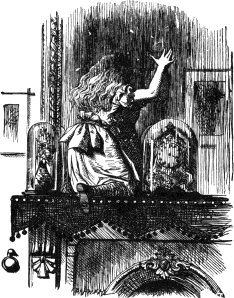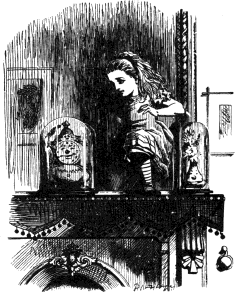 Chirality is a big deal because without it, life on this planet could not exist.
Chirality is a big deal because without it, life on this planet could not exist."When used in the context of chemistry, chirality usually refers to molecules. Two mirror images of a molecule that cannot be superimposed onto each other are referred to as enantiomers or optical isomers. Because the difference between right and left hands is universally known and easy to observe, many pairs of enantiomers are designated as "right-" and "left-handed." A mixture of equal amounts of the two enantiomers is said to be a racemic mixture. Molecular chirality is of interest because of its application to stereochemistry in inorganic chemistry, organic chemistry, physical chemistry, biochemistry, and supramolecular chemistry."
 In Physics World, researchers may finally have an answer as to why nature prefers "left Handedness" in organic molecules.
In Physics World, researchers may finally have an answer as to why nature prefers "left Handedness" in organic molecules."Amino acids, for example, can be either right- or left-handed mirror-images of each other. However, they are always left handed when produced by living organisms. This is important because chirality can affect how a molecule takes part in the chemical reactions crucial for life. Scientists believe that two external agents could be responsible for chirality in biological molecules: circularly polarized light and spin-polarized electrons."
 Chirality in nature was discovered by Louis Pasteur, the brilliant French scientist who ",,,was singlehandedly responsible for some of the most important theoretical concepts and practical applications of modern science."
Chirality in nature was discovered by Louis Pasteur, the brilliant French scientist who ",,,was singlehandedly responsible for some of the most important theoretical concepts and practical applications of modern science."
 Interestingly enough, Louis Carrol used Pasteur's findings in Through the Looking Glass to ask the cosmic question, "`How would you like to live in Looking-glass House, Kitty? I wonder if they'd give you milk in there? Perhaps Looking-glass milk isn't good to drink.' "
Interestingly enough, Louis Carrol used Pasteur's findings in Through the Looking Glass to ask the cosmic question, "`How would you like to live in Looking-glass House, Kitty? I wonder if they'd give you milk in there? Perhaps Looking-glass milk isn't good to drink.' "If one wants to extend this concept of chirality to infinity, perhaps Cern's take regarding Antimatter will suffice. I know it does for me.

2 comments:
Interesting post. I love Feynmans take on this, about the gate in Japan, and not making the gods jealous
Just read the passage you refer to. Seems the Navaho and the Tibetan monks have the same notion whereby they introduce an error into their works of art in order not to offends the gods. Terrific reference in your comment.
Best
remoran
Post a Comment